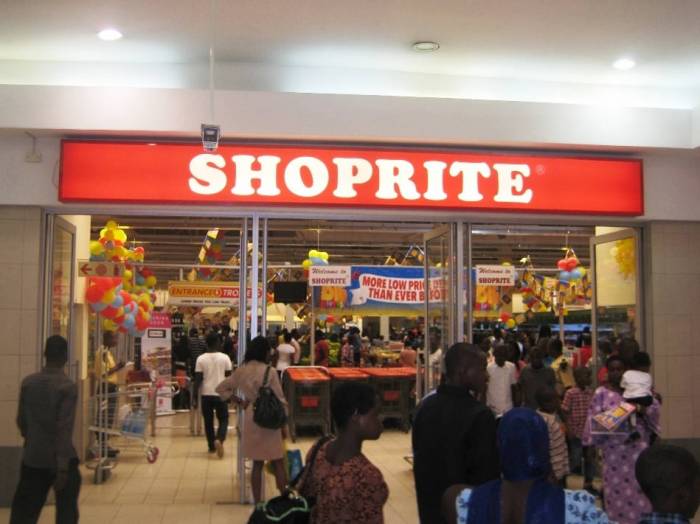Retail Supermarkets Nigeria Limited (RSNL), the local operator of ShopRite, has restated its commitment to serving Nigerian consumers better following recent disruptions in store operations and customer satisfaction. The retailer’s renewed assurance comes as it works to restore consistency across product availability, pricing, and store operations in response to rising concerns of empty shelves, outlet closures, and service gaps.
In recent weeks, shoppers in cities including Lagos, Abuja, Ibadan, and Ilorin have reported seeing scant inventory in major ShopRite stores—and in some cases, shuttered locations. In response, RSNL has explained that these issues stem from a broader restructuring of its operations, which includes realigning store formats, reducing reliance on imported goods, and optimizing supply chains. Chief Strategy Officer Bunmi Cynthia Adeleye confirmed that over 80 percent of the store’s merchandise is now being sourced locally, a deliberate move to reduce import dependence and exposure to foreign exchange stress.

Adeleye emphasized that what customers are witnessing is a “reset” rather than a retreat. She described the current period as “tough,” but underlined that the old business model—with its large-format stores, high fixed costs, and heavy imports—was no longer sustainable under Nigeria’s economic realities. “We are rebuilding ShopRite to be more local, culturally relevant, more affordable, and more resilient,” she said. The leadership is hopeful that the changes will translate into improved operations by the end of September, forecasts show restocking of stores and reopening of temporarily closed outlets.
Part of the strategy includes smaller, more efficient store formats to serve foot traffic in diverse locations while managing overheads more tightly. This is complemented by enhanced liquidity management and tighter control of working capital. Issues such as erratic power in some malls—which have hampered fresh produce availability—are also being addressed as part of the operational shake-up. RSNL says that with new investment backing, it is better positioned to adapt to local cost pressures such as rent, energy, and staffing.
Customers have been both critical and patient. Empty shelves, intermittent closures, and inconsistencies in product lines drew social media attention and local media coverage. Some patrons worried ShopRite was preparing to exit Nigeria; in its statement, RSNL strongly denied that, reiterating it remains fully committed to the Nigerian market. Customers were further assured that operations will stabilize, with restocking underway and store reopening planned ahead of the year end’s shopping peak.
In terms of pricing, RSNL’s local sourcing pivot is expected to help moderate price inflation, particularly for staples and fresh goods. Local sourcing of produce and some everyday household items can reduce transit times, foreign‐currency costs, and import tariffs, which often drive up consumer prices. Though inflation and currency fluctuations remain threats, the company says these measures will help shield customers from sharp price increases and improve product availability.
The retailer is also investing in logistics and supply chain robustness. Store locations that rely heavily on imports or large logistics chains are being revisited. RSNL is building out stronger, more agile distribution centers and refining its supplier relationships with local farmers, manufacturers, and producers. This is both a cost and stability play: local suppliers are less subject to the high freight and import delays that ripple through global supply chains.
An important part of the strategy is transparency and communication. RSNL says it will regularly update the public on its progress, including which stores will reopen and when, as well as timelines for restocking and improvements. Management acknowledges that trust has been shaken in some communities and that a more consistent customer experience will be essential to rebuilding that trust.
Observers believe that the timing of these pledges is critical. With the festive and holiday shopping season approaching, retailers who can meet demand steadily will gain competitive advantage. RSNL is leveraging this period to show customers that the operational reset is yielding results—restocks, store reopenings, improved product mix, and stabilizing prices are key performance indicators.
While the path forward is not without challenges—rising energy costs, inflationary pressures, supply chain disruptions, foreign exchange volatility—the retailer believes this new model positions it better. The emphasis on local sourcing, leaner store formats, better supply chain management, and more relevant product mix is intended to make the business sustainable, while remaining customer-focused.
In summary, RSNL’s restatement of its commitment is grounded in action: a restructuring of business models, increased local sourcing, store revitalisation, tighter cost management, and a stronger connection to local consumer needs. For customers, promises are already translating into visible changes. As ShopRite works through the reset, many shoppers are watching closely, hoping these shifts will deliver consistency, affordability, and improved experience in the coming months.
Support InfoStride News' Credible Journalism: Only credible journalism can guarantee a fair, accountable and transparent society, including democracy and government. It involves a lot of efforts and money. We need your support. Click here to Donate
